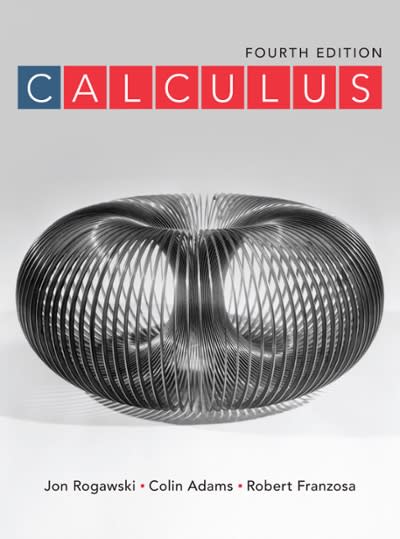Epidemiology, please help with answering.
second image
School-based deworming Annual community-wide Biannual community-wide treatment treatment Do not round interim calculation steps Cluster characteristics (n=120) Total included 40 Q5.4 Examine Table 1. Did the study achieve good balance in baseline characteristics of the study 40 40 Sanitation coverage" 53.5%% (2-1% to 98.3% ) 53-0% (5-3% to 92.8% ) 49.7% (1-4% to 96-2%) population? Urbant 4 (10-06) 2 (5-0%) 3 (7:5% ) Hard to reach: 307-5% ) Yes 4 (10-0) 4 (10.0%) Arids (17-5%) 3 (7.5% ) 5 (12.5%) o No Households surveyed (n=23 414) Total included 7610 7819 7985 Q5.5 Examine Table 3. Are the measures of association stronger at the 12-month assessment or the 24- Number of household members 5 (1-22) 5 (1-23) 5 (1-21) Asset index score 0-47 (-0-01 to 2-21) month assessment? 0-47 ( 0-01 to 2-21) -47 (-0-01 to 2-21) Living in poorest quintilell 2339 (30-7%) 2407 (30.8%) 2394 (30-0%) o 12-month assessment Electricity to household 742 (9-8%) 690 (8-8%) 706 (8-8%) o 24-month assessment Owns a bicycle 2315 (30-4%) 2445 (31-3%) 2455 (30-8) Earth floor 5797 (76-2%) 6270 (80-2%) 6234 (78-1%) Q5.6 What value of the minimum detectable effect did the authors use for this study? % difference Household toilet facility access None 3463 (45.5%) of 7605 3546 (45-4%) of 7816 between groups 4035 (50-6%) of 7977 Shared access 1801 (23.7%) of 7605 1907 (24.4%) of 7816 1855 (23.3%) of 7977 Enter only a number. For example, if your answer is 100%, enter 100 in the box. Private access 2341 (30-8%) of 7605 2363 (30.2%) of 7816 2087 (26-2%) of 7977 Soap and water observed at toilet* * 255 (8-2% ) of 3095 227 (7-2%) of 3175 207 (6-9%) of 2998 Toilet facility has washable slabit 1768 (56-1%) of 3150 1534 (47-5%) of 3230 1662 (54-7%) of 3039 Q5.7 For sample size considerations, what type 2 error value did the authors use for this study? Improved water source 3977 (52-6%) of 7556 4589 (58-8%) of 7800 4022 (50-4%) of 7978 Water source 75%% households in areas with population density > 1000 persons per km'. $Defined as Biannual community-wide 287 of 8177 3.5% (1-9to 5-2) -0.2% (-5-6 to 5-2) 0.90 (0-45 to 1-81) 0-47 1-16 (0 82 to 1-65) 0-63 >75% of households 75%% households in arid or semi-arid areas. Based on factor analysis of owned assets and household structure. treatment IlFrom asset index score. " Data available for 9268 households with toilet and handwashing facilities it agreed to direct observation. Data available for 4-month assessment 9419 households with toilet facilities on premises that agreed to direct observation. School-based deworming 292 of 7058 4-1% (1.9 to 6-4) -0.1% (-5.9 to 5.7) 1 (ref) 1 (ref) Annual contunity-wide 197 of 7446 2-6% (1-7 to 3-6) 03% (-4-7to 4-2) 0-65 (0-34 to 1 24) 1.20 (0-86 to 1 68) Table 1: Baseline characteristics of the study population treatment Biannual community-wide 237 of 7281 3-3% (18 to 47) 04% (-58 to 4 9) 0-80 (0 40 to 1 61) 0-41 101 (077 to 1:34) 0-43 treatment p values correspond to the treatment group categorical variable. "Adjusted for stratification factors (subcou valence, and cluster size), urban or rural status and baseline cluster mean socioeconomic status, access to sanitation, and access to improve household member to participate at random. Table 3: Effects of annual and biannual com and Trichuris trichkuraDo not round interim calculation steps Q5.4 Examine Table 1. Did the study achieve good balance in baseline characteristics of the study population? o Yes o No Q5.5 Examine Table 3. Are the measures of association stronger at the 12-month assessment or the 24- month assessment? 12-month assessment o 24-month assessment Q5.6 What value of the minimum detectable effect did the authors use for this study?_ % difference between groups Enter only a number. For example, if your answer is 100%, enter 100 in the box. Q5.7 For sample size considerations, what type 2 error value did the authors use for this study? % Q5.8 In the sample size calculations, what did the authors define as the outcome rate in the control arm? % Q5.9 True or false, the independent observations assumption of most power/sample size formulas is violated in this study? True O False Number positive of Community prevalence Absolute percentage Unadjusted risk ratio p value Adjusted risk ratio' pvalue total respond (95% CD) change from baseline (95% () (95% () Hookworm 12-month assessment School-based de 1284 of 7957 16-1 (12 1 to 20.1) -2-4% (-10 9 to 6-1) 1 (ref) I (ref) Annual community 984 of 8355 11-8% (9 0 to 14-6) 6-1% (-13-6 to-131 0-73 (0-52 to 1-03) 077 (0-65 to 0.91) treatment annual commun 836 of 8177 10-2%% (7-6 to 12-9) -10-4%(-15-5 to-6-0) 0-64 (0-45 to 0-92) 0-04 0-65 (0-53 to 0-78) 0-001 treatment 24-month asses School-based de 972 of 7058 13 8% (105 to 17 0) 4-8% (-13 0 to 3.5) 1 (ref) (ref) Annual community- 597 of 7446 8:0 (6 0 to 10-1) 99% (-16 8 to-3 0) 0-59 (0 42 to 0 83) 0.64 (0.52 to 0 78) treatment Biannual community-wide 453 of 7281 6-2% (4-9 to 7.5) -14-4% (-21-4to-7.4) 0-46 (0-33 to 0-63)








